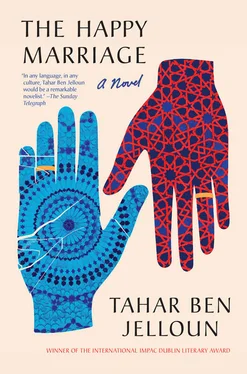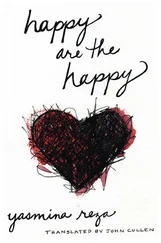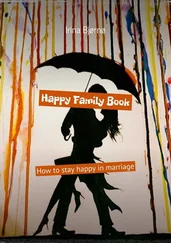Whenever he spoke, the Twins would guess what he was saying, even if they didn’t understand certain words. They would read his facial expressions and anticipate his wishes. They needed a sharp sense of hearing and a lot of patience. When he grew tired, he would blink his eyes several times to signify that he wanted them to leave him alone. Perhaps that was when he would allow himself to cry, he who had once been so brilliant, elegant, and celebrated wherever he went. He’d had a close brush with death, but he hadn’t completed his work. He took this as an insult, a dirty trick that fate had played on him, and a spiteful one at that. As he’d dreamed of dying in his sleep like his old, fun-loving, polygamous uncle, this was a constant source of grief for him. But what had befallen him was the same thing that had struck so many friends and acquaintances who belonged to his generation. As his physician had told him, he had reached a critical age. To be in the prime of life meant facing a few storms.
When the anger of the first months had subsided a little, he decided to begin smiling at those who came to visit him, a means for him to fight against the physical decline that sometimes caused the mind to follow suit. So he always smiled. There was his morning smile, which was subtle and sweet, his afternoon smile, which was impatient and curt, and the one he wore in the evenings, which in the long run turned into a faint grimace. Then, he suddenly stopped smiling. He didn’t want to pretend anymore. Why should he smile? Who would he smile at, and for what purpose? The illness had changed his habits. Was it an illness or was it death?
He wasn’t the same man anymore, he saw that in other people’s eyes. He had lost his presence as a great artist. But he refused to hide; he wanted to be able to leave the house before too long and show his new condition in public. It would be a painful process, but he insisted on going through with it.
Curiously enough, despite his almost total paralysis he had never contemplated giving up painting. He was convinced that the evil that afflicted him was nothing more than a little episode that was bound to be temporary. Every day, he would try to move the fingers of his right hand. And every day he would ask for a brush, which they would place between his thumb and forefinger, but he was unable to keep a grip on it for long. So he would keep repeating the exercise several times each day. The moment he could grip a brush, he would start caring less about the condition the rest of his body was in.
Ideas for new paintings swarmed around in his head. His inability to paint had put him in a constant state of excitement. He was even more impatient than usual. Eventually, those moments of disquiet and intensity would give way to long silences that came coupled with feelings of defeat. His mood would change, and he would feel as though he’d fallen into a thick fog, which seemed to foreshadow some gloomy event. A sting of drool hung from his half-open mouth. From time to time, one of the Twins would gently wipe it away. This would stir him back into consciousness, and he would feel ashamed that he’d been unable to contain his spittle, ashamed that he’d dozed off. It was these little things that bothered him the most, rather than the fact he was paralyzed.
The television was on and there was an athletics championship on. He’d always been fascinated by those magnificent, supple, perfect bodies, in fact too perfect to be human. He would gaze at them and wonder how many years, months, and days of hard work lay behind each movement those young athletes performed. He didn’t want anyone to change the channel. No, he wanted to watch that show precisely because of the state he was stuck in. He dreamed and experienced a strange sort of pleasure in admiring those young athletes’ movements. He found himself watching and encouraging them as though he knew them personally, as though he were their coach, their teacher, their adviser, or as though he were simply their father.
His mind turned to a book by Jean Genet that a friend had given him on his birthday, The Tightrope Walker . He’d read it very excitedly and had pictured the kind of tension that the acrobat must have suppressed with each movement he made. He had thought about drawing some illustrations for that book someday, but he’d been told that Genet wasn’t an easy man to deal with and that he would probably refuse to give his consent. He would reread it from time to time and focus on a wire extended between two fixed points, and picture himself balanced on top of it, his body drenched in sweat, his trembling arms holding onto the rod, then watch himself slip, fall, and shatter all his limbs. He’d even go to the lengths of inventing a whole backstory behind that injured tightrope walker, who’d wound up like that because he’d fallen while performing in a circus. That accident was physical, not psychological. That man wasn’t a vexed, anxious painter, but an acrobat who’d broken his body thirty feet below the wire.
He was pleased with the discovery he’d made. Not a single tear had slipped down his cheek. His spirit hadn’t flagged. He touched his leg using his limp, heavy hand and didn’t feel a thing. “We’ll get better. Hang in there, sonny boy,” he said to himself.
He hadn’t seen his wife since their last quarrel — and the stroke that had immediately followed in its wake. He was now living in his studio, which he’d had equipped with all the things he needed in order to get by and overcome the trial of that illness. She occupied the other wing of their house in Casablanca, which was very large. The Twins had been instructed never to let her anywhere near him. But he might as well not have bothered. The distance between them rather seemed to suit her, and she hadn’t shown the slightest interest in looking after an old sick man. He had wanted to take stock of their twenty-year marriage. From that point of view, the break that his stroke had imposed on their relationship had been fortuitously timed. He would sometimes see her make herself pretty to go out from one of the studio’s windows that gave out onto the inner courtyard of their villa. Nobody knew where she went, which was for the best. In any case, he had decided to neither keep an eye on her nor suspect her.
In the past, when he’d been healthy, he had fled, gone on a trip, and disappeared off the face of the earth. That had been his usual response to his frustrations or their marital disputes. He used to keep a journal where he only wrote about the problems in his marriage. He didn’t mention anything else in that notebook. Over the course of twenty years, the transcripts of their quarrels, aggravations, and tantrums hadn’t varied a great deal. It was the story of a man who believed that people could change, overcome their defects and strengthen their positive qualities, and improve themselves through constant self-examination. While he’d never necessarily wanted his wife to one day grow docile and submissive, he had always harbored a secret hope that she would at least become loving and obliging, calm and reasonable, in short, a wife who could help him build a family life and then share it with him. It had been his dream. But he’d been misguided and he had instead oppressed his wife, forgetting to acknowledge his share of responsibility for that failure.
II. Casablanca, February 8, 2000
Every sacrifice is possible and tolerable in a couple until the day when one of them realizes that there were sacrifices to make.
— SACHA GUITRY, Give Me Your Eyes
As soon as he woke up, the painter asked the Twins to bring him a mirror. It was the first time in the three months after his stroke that he felt strong enough to dare to gaze upon his reflection. When he saw himself, he burst into a huge laugh because he didn’t recognize himself at all and thought his reflection looked completely pathetic. He told himself: “What would I have done in your place? Kill myself? I’m not brave enough for that. Would I have refused anyone who tried to give me a mirror? Yes, that’s it, that’s exactly what I would have done! I wouldn’t have looked at myself, so as not to realize what I’ve become. I would have avoided tearing open another wound in my suffering at all costs!”
Читать дальше












